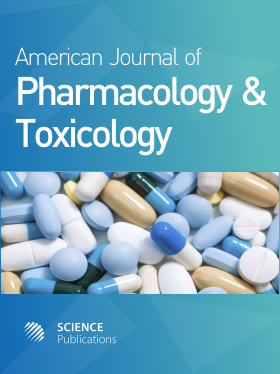Drug Repositioning in Response to COVID-19 and other Challenging Diseases
- 1 Department of Veterinary Pharmacology and Toxicology, Faculty of Veterinary Medicine, University of Maiduguri, PMB 1069 Maiduguri, Borno State, Nigeria
- 2 Department of Animal Production and Health, Faculty of Agriculture and Life Sciences, Federal University Wukari, PMB 1020 Wukari, Taraba State, Nigeria
- 3 Department of Theriogenology, Faculty of Veterinary Medicine, Ahmadu Bello University, PMB 1013 Zaria, Kaduna State, Nigeria
- 4 Department of Veterinary Parasitology and Entomology, Faculty of Veterinary Medicine, University of Maiduguri, PMB 1069 Maiduguri, Borno State, Nigeria
Abstract
Coronavirus disease is a highly contagious infection that is majorly associated with upper respiratory tract illnesses. The World Health Organization (WHO) label the novel coronavirus disease COVID-19 after an epidemic of the disease in Wuhan, Hubei province (China). Over 90 clinical trials, including drug repositioning, have been initiated to get COVID-19 treatment/management. Antibiotic resistance, drug tolerance, mutation, and adverse drug effects possess a lot of setbacks during therapy, especially with emerging infectious diseases. This necessitates the need for research into getting newer drugs or repositioning the available ones to meet up with the treatment of both infectious and non-infectious diseases affecting humanity. Drug repositioning is a stepwise process that aids in discovering new indications and therapeutic targets of drugs and it usually takes 3-12 years on average to be completed whereas, in drug discovery, an average of 10-17 years is needed for the whole process. This is because, in repositioning, the research process goes straight to preclinical and clinical trials since both the toxicological and pharmacological profiles of the drug to be repositioned are known, thus reducing time, risk, and costs. Based on 2009 statistics, 30% of all drugs sold in that year are products of repositioning while only one out of one million potential drug candidates have the possibility of entry into clinical studies with a tendency of significant failures. Hence the need to discover additional uses for already established drugs, especially with the emergence of COVID-19. Drug repositioning is therefore considered an alternative way to new drug development as it entails the discovery of newer therapeutic uses of established drugs.
DOI: https://doi.org/10.3844/ajptsp.2022.37.47

- 7,758 Views
- 3,893 Downloads
- 0 Citations
Download
Keywords
- Drug Repositioning
- New Drug Discovery
- Approaches to Drug Repositioning
- Repositioned Drugs
- COVID-19
